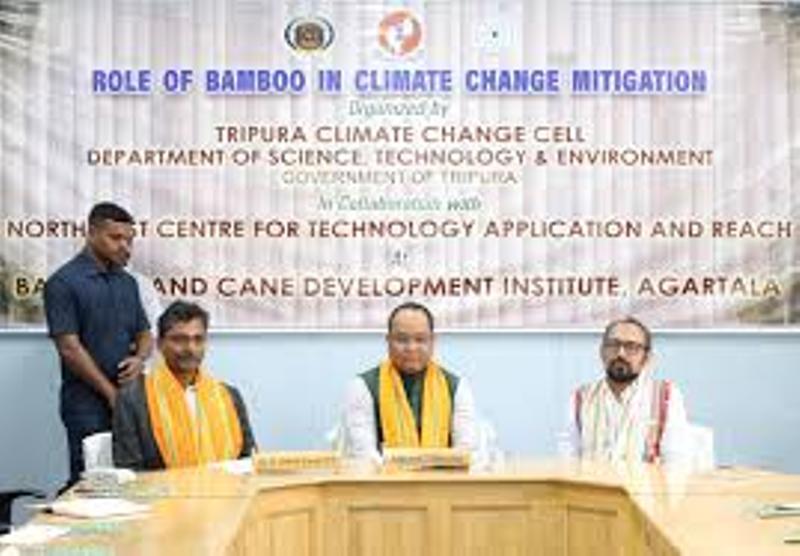Agartala: The Tripura government has submitted four Detailed Project Reports (DPRs) to the Centre for a large-scale bamboo plantation across the state to tackle climate change.
This was informed by Animesh Debbarma, Minister of Science and Technology Department, during a one-day workshop on “Role of Bamboo in Climate Change Mitigation” at the Bamboo and Cane Development Institute (BCDI) in Lichu Bagan, Agartala, on Tuesday.
The minister emphasized the state government’s commitment to environmental conservation and sustainable development.
“Climate change is a significant challenge. The Climate Change Department, under the Science and Technology Department, has been actively working to raise awareness about climate change and its mitigation strategies. The absence of trees and bamboo accelerates climate change, so we are prioritizing afforestation efforts. While adaptation is essential, mitigation is equally crucial,” Debbarma stated.
The initiative focuses on expanding bamboo cultivation across the state to enhance carbon sequestration, restore degraded land, and promote sustainable livelihoods.
Highlighting bamboo’s environmental benefits, he stated that it can absorb 35% more carbon dioxide than regular trees.
“With a 70% bamboo plantation, carbon absorption is equivalent to 100 trees. Moreover, bamboo releases 30% more oxygen than conventional trees. This makes large-scale bamboo cultivation crucial in our fight against climate change,” Debbarma added.
By increasing the bamboo cover, the government aims to create a long-term ecological balance while providing economic benefits to local communities.
Bamboo, known for its rapid growth and high carbon absorption capacity, has emerged as a key resource in mitigating the effects of climate change.
ALSO READ: Tripura CM seeks Centre’s aid for post-flood restoration after Rs 15K crore loss
It can grow quickly without depleting soil nutrients. Its ability to absorb large amounts of carbon dioxide makes it an ideal choice for combating rising global temperatures.
The DPRs outline strategies for plantation, resource management, and long-term sustainability.















